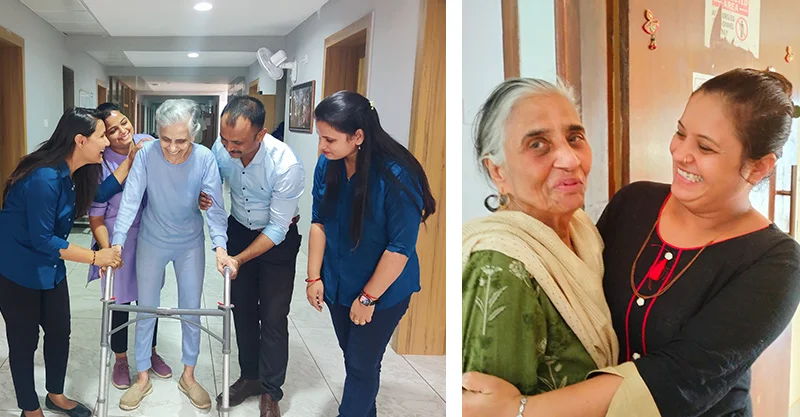Elderly long-term care provides essential support for seniors who require ongoing assistance due to age-related limitations or chronic health conditions. In this comprehensive guide, we’ll delve into the meaning of long-term care, explore its numerous benefits for seniors and their families, and offer valuable tips for choosing the best care options. From personalized assistance to specialized services, long-term care facilities strive to create nurturing environments where seniors can thrive in their golden years.
What is Elderly Long-Term Care? It’s Meaning
Elderly long-term care refers to the comprehensive assistance and support provided to seniors who require ongoing supervision and help with activities of daily living due to chronic illness, disability, or age-related limitations. This type of care is designed to ensure the safety, well-being, and quality of life of older adults who may struggle to live independently.
Benefits of Senior Long-Term Care
- Personalized Care: Elderly long-term care offers individualized attention and support tailored to the unique needs and preferences of each resident. They ensure they receive the appropriate level of assistance and medical attention.
- Safe Environment: Long-term care facilities provide a secure and monitored environment, reducing the risk of accidents or injuries for seniors who may have mobility issues or cognitive impairments.
- 24/7 Supervision: Trained staff members are available around the clock to provide assistance, monitor residents’ health, and respond promptly to any emergencies or concerns that may arise.
- Access to Medical Services: Long-term care facilities often have medical professionals on staff or on call, allowing residents to receive prompt medical attention and ongoing healthcare management.
- Socialization Opportunities: Seniors in long-term care facilities have the opportunity to interact with peers, participate in group activities, and engage in social events, reducing feelings of loneliness and isolation.
- Assistance with Activities of Daily Living: Long-term care providers assist residents with tasks such as bathing, dressing, grooming, medication management, and meal preparation, promoting independence and dignity.
- Support for Family Caregivers: Long-term care facilities can alleviate the burden on family caregivers by providing professional support and respite care, allowing them to take breaks and attend to their own needs.
- Specialized Services: Some long-term care facilities offer specialized programs and therapies tailored to address the specific needs of residents with conditions such as dementia, Alzheimer’s disease, or Parkinson’s disease.
- Peace of Mind: Knowing that their loved ones are receiving professional care and support in a safe and nurturing environment can provide peace of mind for family members and caregivers.
- Continuum of Care: Many long-term care facilities offer a continuum of care, allowing seniors to transition smoothly between different levels of assistance as their needs change over time.
You may like to read this: Elderly Care Monitoring – What is it? How to do this? What are the benefits of it?
Tips for Choosing the Best Long-Term Senior Care
- Assess Your Loved One’s Needs: Consider your loved one’s health condition, mobility, cognitive abilities, and preferences when evaluating long-term care options.
- Research Facilities: Take the time to research and visit multiple long-term care facilities to assess their amenities, services, staff qualifications, cleanliness, and overall atmosphere.
- Ask for Recommendations: Seek recommendations from healthcare professionals, friends, and family members who have experience with long-term care facilities.
- Consider Location: Choose a long-term care facility that is conveniently located for family visits and accessible to medical services and community resources.
- Review Contracts and Fees: Carefully review contracts, fees, and payment options to ensure transparency and affordability.
- Meet with Staff: Schedule meetings with facility staff to ask questions, discuss care plans, and assess their level of professionalism and compassion.
- Visit During Meal Times and Activities: Visit the facility during meal times and scheduled activities to observe the quality of food, social engagement, and overall atmosphere.
- Consider Specialized Care Needs: If your loved one has specific medical or cognitive needs, ensure that the long-term care facility has experience and expertise in providing appropriate care and support.
- Trust Your Instincts: Pay attention to your gut feelings and impressions during visits to long-term care facilities. Trust your instincts when making decisions about your loved one’s care.
- Stay Involved: Stay involved in your loved one’s care by communicating regularly with facility staff, attending care plan meetings, and advocating for their needs and preferences.
PapayaCare – A Well-known Aging Long Term Care Providing Assisted Living Facility
PapayaCare is a reputable provider of aging long-term care, offering assisted living facilities that prioritize the comfort, safety, and well-being of seniors. Our experienced staff members are dedicated to providing compassionate care and personalized support to residents, ensuring they lead fulfilling lives in a nurturing environment.
At PapayaCare, we offer a range of amenities and services tailored to meet the diverse needs of seniors, including assistance with activities of daily living, medical care coordination, social activities, and nutritious meals. Our goal is to create a warm and welcoming atmosphere where seniors can thrive and enjoy their golden years to the fullest.
Conclusion
Elderly long-term care plays a crucial role in ensuring the health, safety, and quality of life of seniors who require ongoing assistance and support. By understanding the meaning of long-term care, recognizing its benefits, and following tips for choosing the best care options, families can make informed decisions that meet their loved ones’ needs and preferences. Whether seeking specialized services or a supportive community environment, facilities like PapayaCare offer comprehensive solutions to help seniors age with dignity and grace.
















